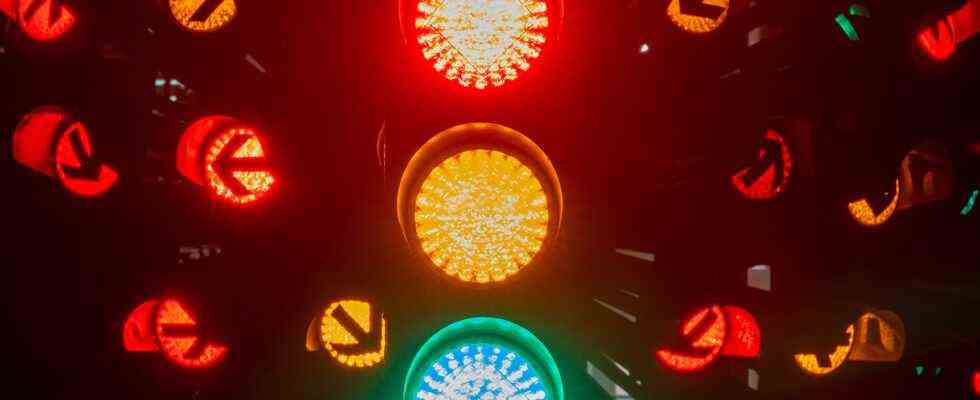As of: 10/17/2021 5:03 a.m.
The Greens are voting today at a small party congress to start negotiations on the “traffic light” coalition. Meanwhile, possible successors for the CDU leader Laschet are getting into position on the German Union Day.
After the successfully completed explorations, the Greens want to decide at a small party congress whether to start coalition talks with the SPD and FDP. From 1 p.m. onwards, the delegates are to come together in a congress building at Berlin’s Westhafen. The meeting is scheduled to end at 4:00 p.m.
The basis for the decision is the exploratory paper presented by the three parties on Friday, in which the “traffic light” parties committed to climate protection to bring Germany on the 1.5 degree path. In addition, the coal phase-out should “ideally” be brought forward to 2030.
Baerbock confident
Party leader Annalena Baerbock was satisfied with the results of the explorations. Despite the differences between the parties, it was possible to “find bridges,” she said. It is expected that the state council will follow the line of the party leadership.
According to the party press office, 99 delegates are entitled to vote at the state council. How many delegates will actually take part in the vote is yet to be announced. If, after the Greens, the FDP leadership votes for it on Monday, the way would be free for coalition negotiations.
The Greens MP Trittin considers the result of the explorations to be a “proper compromise”.
Image: dpa
Trittin defends exploratory results
The Green politician Jürgen Trittin defended the waiver of some positions in the exploratory paper: “The path for the FDP into the traffic light coalition is wider than for us,” he told “Bild am Sonntag”. “The delegates know that there are no tax cuts for higher earners, but a minimum wage for ten million people and a basic security for children. Greens have prevailed. On the other hand, there is no greater burden on top earners. The FDP prevailed. That is what it is – a decent compromise, “said Trittin. FDP leader Christian Lindner told the newspaper: “The exploratory paper contains many of the FDP’s concerns.”
Possible Laschet successors on Germany Day
Meanwhile, the Junge Union (JU) is continuing its Germany Day in Münster. As the last top politician, Union parliamentary group leader Ralph Brinkhaus (CDU) wants to speak at the meeting of the youngsters from the CDU and CSU. In addition to economic expert Friedrich Merz, health minister Jens Spahn, foreign politician Norbert Röttgen and economic politician Carsten Linnemann, Brinkhaus is considered a possible candidate for the CDU leadership and thus as the successor to party leader Armin Laschet.
Foreign politician Röttgen is one of the potential Laschet successors – and believes that the traffic light exploratory decisions could help the Union.
Image: AFP
Röttgen sees advantages for Union in the exploratory paper
The CDU politician Norbert Röttgen sees advantages for his party in the exploratory decision by the SPD, FDP and the Greens. “For the Union this exploratory paper is first of all a reason to be confident,” said Röttgen to the editorial network Germany (RND). The paper of the likely traffic light coalition shows that they still have no answers to the pressing questions. “They have to govern now. We can systematically face these questions. If we do that, we’ll be back. If we don’t, things will continue to decline.”
CSU Vice Weber defends Laschet
The deputy CSU chairman and head of the EPP parliamentary group in the European Parliament, Manfred Weber, warned against unilateral blame after the Union’s election failure in the federal election. In view of the massive criticism of Chancellor candidate Armin Laschet, Weber told “Bild am Sonntag”: “The top candidate always bears great responsibility for an election result. But we as a Union would make a big mistake if we blame everything on Armin Laschet.”
MEP Weber calls for an end to the “laschet bashing”.
Image: dpa
The “laschet bashing” must come to an end, warned Weber. The causes of the Union’s electoral defeat went much deeper. What is needed now is an intensive discussion about what will make modern popular parties for the future.

